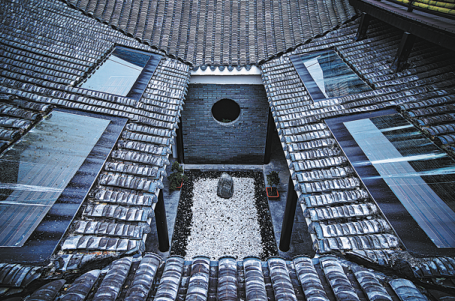

Once filled with chaotic pig farms, one village has turned into a tourist getaway.
On a day in late May, Lianfeng village, in Zhejiang province's Jiaxing city, looked amazing in the spring sunshine.
Featuring the south of the Yangtze River's lower reaches, the village covers an area of about 7.2 square kilometers and is home to more than 3,800 villagers.
Well-paved roads meander through the labyrinth of the green rural landscape. Fountain water springs from the center of small lakes, and gray-tiled, white-walled houses are dotted around lush grass and trees.
Wang Yuqin has been doing a brisk restaurant business in Lianfeng over the last few years.
Her restaurant is usually fully booked during weekends and major holidays.
Wang gave a broad smile when she was asked how much her catering business brings her.
"Over the past few years, we have not only seen a steady increase in annual income, but more importantly, life is now more pleasant and promising than it was before when it was just about raising pigs," Wang says.
Before 2014, the village was crowded with illegal makeshift constructions mostly for pig raising and animal waste.
"It was dirty and stinky everywhere then, and the antenna hung on the telegraph poles like cobweb," says Jin Yunhai, deputy Party secretary of Lianfeng.
The village had a long pig-raising history, but spontaneous animal rearing by villagers posed an increasing burden on the environment.
"As the pork market was on the rise, villagers were encouraged to expand their business by setting up makeshift pigsties," Jin says.
It did not take long before it took a toll on the environment. Sewage was flowing into the river and silt blocked the waterway.
The deteriorating environment also posed increasing risks for the pigs' health and incurred costs for many villagers.